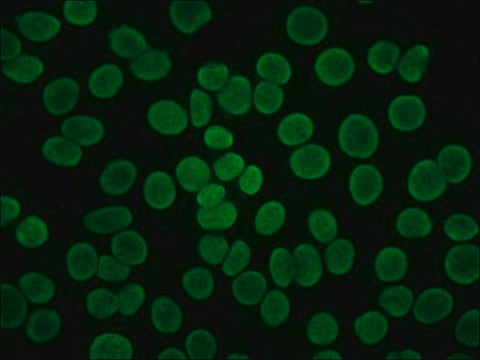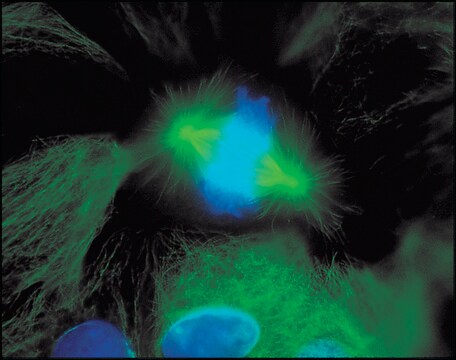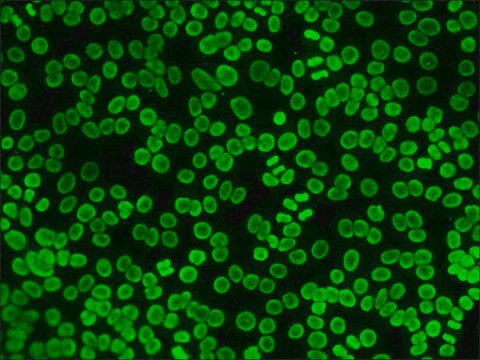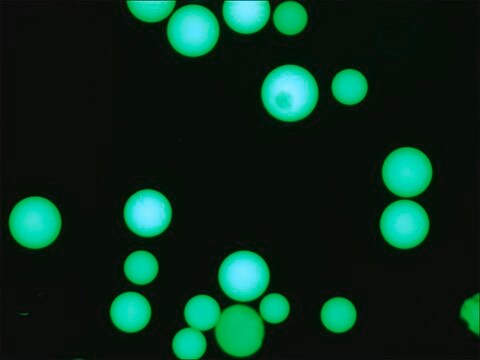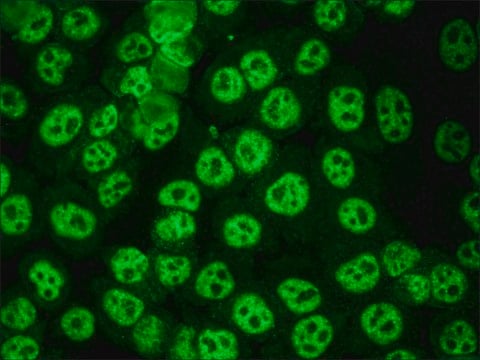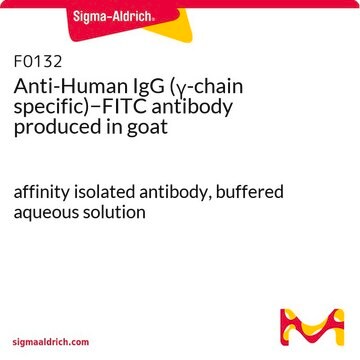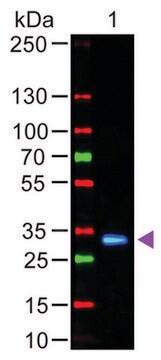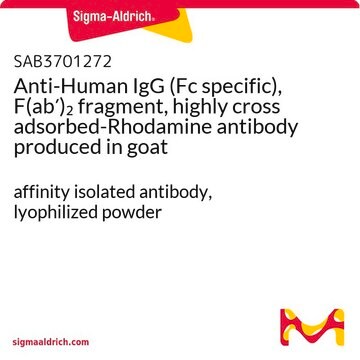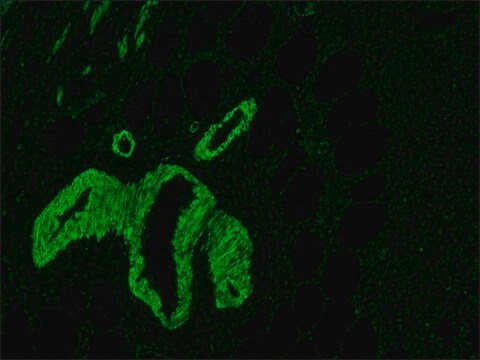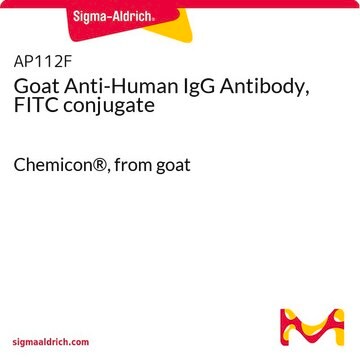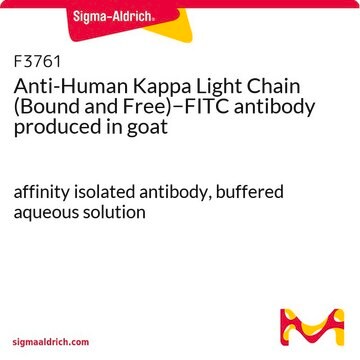F9512
Anti-Human IgG (Fc specific)−FITC antibody produced in goat
affinity isolated antibody, buffered aqueous solution
Synonym(s):
Anti Human IgG Fitc - Anti-Human IgG (Fc specific)-FITC antibody produced in goat, Anti Human Igg Fitc
About This Item
Recommended Products
biological source
goat
Quality Level
conjugate
FITC conjugate
antibody form
affinity isolated antibody
antibody product type
secondary antibodies
clone
polyclonal
form
buffered aqueous solution
storage condition
protect from light
technique(s)
immunofluorescence: 1:64-1:128 using Hep2 cells
storage temp.
−20°C
target post-translational modification
unmodified
General description
Anti-Human IgG (Fc specific)-FITC antibody specifically recognizes Fc fragment of all human IgG subclasses. The conjugate shows no reactivity with human IgG Fab fragment, IgA, IgM and light chains and normal mouse or rat serum proteins. The antibody is purified by immunospecific purification and then conjugated to FITC.
Specificity
Provides reduced background with mouse or rat samples
Immunogen
Application
- immunofluorescence
- immunohistochemistry
- surface labeling experiments
Biochem/physiol Actions
Other Notes
Physical form
Disclaimer
Not finding the right product?
Try our Product Selector Tool.
Storage Class Code
10 - Combustible liquids
WGK
nwg
Certificates of Analysis (COA)
Search for Certificates of Analysis (COA) by entering the products Lot/Batch Number. Lot and Batch Numbers can be found on a product’s label following the words ‘Lot’ or ‘Batch’.
Already Own This Product?
Find documentation for the products that you have recently purchased in the Document Library.
Customers Also Viewed
Our team of scientists has experience in all areas of research including Life Science, Material Science, Chemical Synthesis, Chromatography, Analytical and many others.
Contact Technical Service
